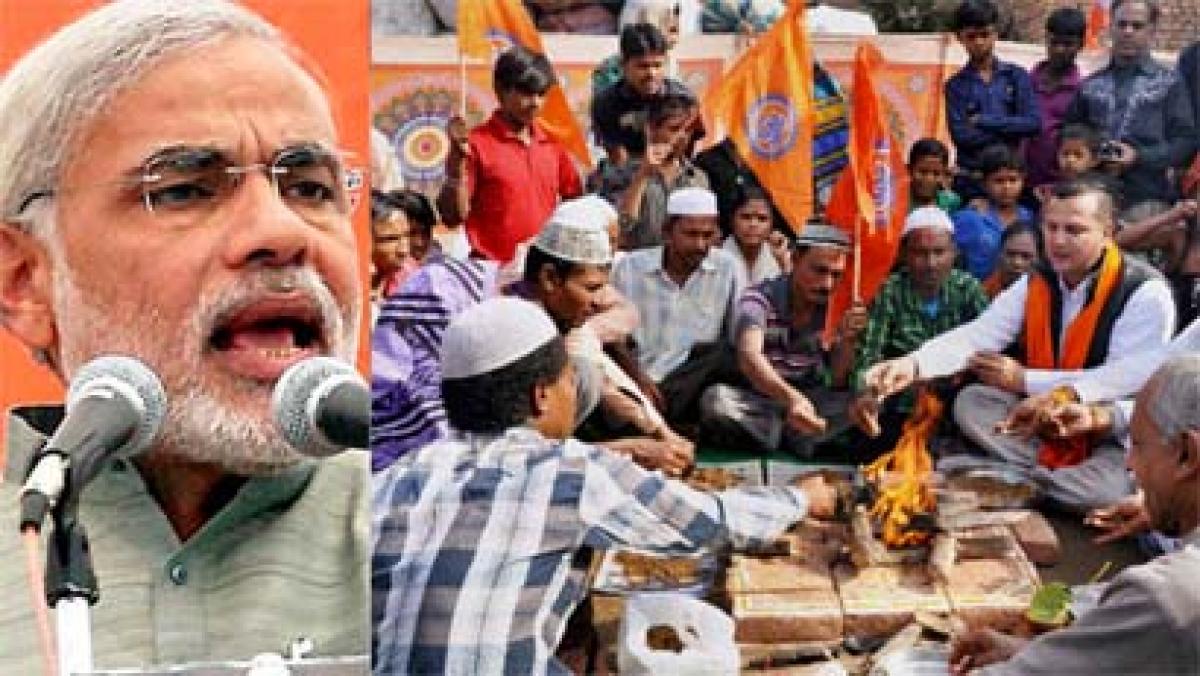Live
- Arjun Das Brings Mufasa to Life in Tamil
- Odisha move to prepare maritime perspective plan
- Jal Jeevan Mission empowering women in rural areas: PM Modi
- Pradhan urges Nadda to set up pharmacy unit in Odisha
- Assembly winter session ends ahead of schedule
- Nepali Army Chief General Ashok Raj Sigdel Strengthens Ties With India In Four-Day Visit
- BRS MLAs, MLCs Skip Second Day of Orientation Classes
- Andhra Pradesh Student Dies in Tragic Car Crash in Leicestershire, 4 Others Injured
- Oppn assails delinking of Waltair div from ECoR
- Rahul Gandhi Vs. Nirmala Sitharaman: War Of Words Over Public Sector Banks
Just In

India has long struggled to protect minority religious communities or provide justice when crimes occur, creating a climate of impunity, said a Pakistani daily which added that the need for India to improve on the rights of its minorities is similar to the situation in Pakistan.
India has long struggled to protect minority religious communities or provide justice when crimes occur, creating a climate of impunity, said a Pakistani daily which added that the need for India to improve on the rights of its minorities is similar to the situation in Pakistan.
An editorial "Rising intolerance" in The Nation on Monday said that India’s denial of visas for a delegation from the US government agency charged with monitoring international religious freedom has raised many eyebrows in the international sphere.
"The move is indicative of the problems still persisting beneath the surface of a state looking to establish itself as a power on the international stage. The biggest democratic nation serves no benefit to its people if fundamental freedoms such as the one to practice religion are not protected," it said.
It said that after 34 lawmakers from the US sent a letter to the government to make India a more pluralistic society and cited the ‘beef ban’ and the failure to register Sikhism as a separate religion as obstacles to more religious freedom, "this move is likely to pose uncomfortable questions to Prime Minister (Narendra) Modi".
It noted that the Indian embassy in Washington has not responded to a request for comment and added: "The obvious implication is that the government has something to hide, after increasing criticism about the way the JNU affair was handled."
"While not directly a religious issue, the reaction of the Modi regime to the protests was extreme to say the least. The need to suppress any dissent is not conducive to a democratic environment, and only breeds greater contempt for the government," the daily said.
The editorial went on to say that "India has long struggled to protect minority religious communities or provide justice when crimes occur, creating a climate of impunity".
"The need for India to improve on the rights of its minorities is similar to the situation in Pakistan; and if both neighbours were to allow more religious freedom, the enmity between the two - centered on an atmosphere created by religious nationalism - could decrease."
It observed that the global environment is currently heading in the wrong direction, with increased suspicion and hostility from those that ascribe to other belief systems.
"This needs to change, and fast too, before entire communities are irrevocably alienated from one another. Starting with two of the most populous countries in the world is only sensible."

© 2024 Hyderabad Media House Limited/The Hans India. All rights reserved. Powered by hocalwire.com







